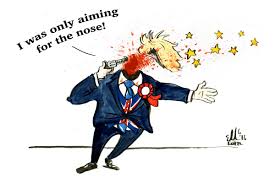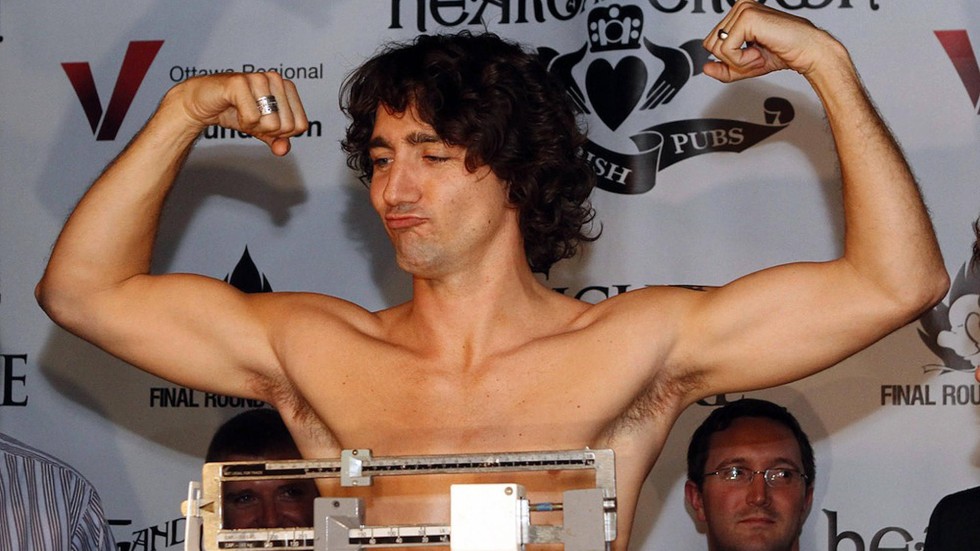An open letter on trade: The facts speak for themselves By 29 E.U. Ambassadors to the U.S.There has been a lot of talk recently about the trade and investment relationship between the European Union and the United States. Who wins? Who loses?
The fact is, we are both winning and have been for years. Claims to the contrary, including that the United States is at the losing end of this relationship, deserve to be debunked. Because the United States makes more money doing business with the E.U. than with anyone else.
The facts speak for themselves:
Fact No. 1: Together, the U.S. and the E.U. have created the largest and wealthiest market in the world. The transatlantic economy accounts for half of the global gross domestic product by value, which directly supports more than 15 million high-quality jobs and $5.5 trillion in commercial sales. And nearly one-third of the world’s trade in goods occurs between the E.U. and United States alone.
Fact No. 2: The United States has a partner in the form of the European Union that invests more in the United States than the United States does in it. The E.U.’s foreign direct investment in the United States is $2.56 trillion, compared with $2.38 trillion in the other direction.
Seventy percent of all foreign direct investment in the United States comes from Europe.Fact No. 3: There is no “buy European” policy for U.S. enterprises to compete with. We have a level playing field in public procurement, regardless of whether you are a European or American company. On top of that, we have eliminated thousands of legal and bureaucratic barriers to trade, leading to an open and thriving marketplace of more than 500 million consumers.
Fact No. 4: The European Union is the top destination for American exports — in 2016, we bought $269.6 billion worth of goods from the United States. And U.S. exports of services to the E.U. — increasingly the backbone of any modern economy — have been steadily increasing over the years, coming in at a record-setting $231 billion in 2016.
That makes us the top destination for U.S. services – in fact, transatlantic trade in services results in a surplus for the United States.Fact No. 5: Our tariff rates are constant, level and predictable, helping U.S. enterprises to seamlessly enter our markets without having to fear sudden, perhaps unforeseen heightened charges. The United States currently imposes individual tariff rates of more than 15 percent on 330 separate manufactured goods. Yet when U.S. companies sell their products to the E.U., they encounter only 45 such tariff peaks.
Simply put, the E.U. invests more in the United States, buys more American services and employs more American workers than the other way around. As a ready comparison: 45 of 50 U.S. states export more to the E.U. than they do to China. And what of China’s foreign direct investment into the United States? It’s around one-hundredth that of Europe’s.
This is a relationship, indeed a partnership, that other countries can only dream of. It’s a partnership underpinned by a broad set of shared values, grounded in a common determination for freedom, peace and prosperity. But, as with any partnership, the prospect of unilateral action by one side, to the detriment of the other partner, places the entire mutually beneficial relationship at risk. Placing tariffs on E.U. steel and aluminium imports — imports that are high value and support critical U.S. industries — is a significant step in that protectionist direction. So is going after the European auto industry — an industry that invests billions in the United States and creates millions of jobs.
Instead, as the two most free and open economies in the world, let’s focus on what benefits us both. We should work together to address Chinese steel overcapacity and other market distortions. We should work together toward a fair, open and rules-based global trading system. We should work together to improve market access for our companies and farmers around the world. Together we should tackle intellectual property theft and look at how we can further reduce red tape, regulatory barriers and tariffs between us — facilitating innovation and investment, to the mutual benefit of business and consumers on both sides of the Atlantic. This, not tariffs and quotas, would be moving in the right direction.
Ambassador of Bulgaria to the United States, Tihomir Stoytchev
Ambassador of Austria to the United States, Wolfgang Waldner
Ambassador of Romania to the United States, George Maior
Ambassador of Finland to the United States, Kirsti Kauppi
Ambassador of Croatia to the United States, Pjer Simunovic
Ambassador of Germany to the United States, Peter Wittig
Ambassador of Portugal to the United States, Domingos Fezas Vital
Ambassador of Slovenia to the United States, Stanislav Vidovic
Ambassador of France to the United States, Gérard Araud
Ambassador of the Czech Republic to the United States, Hynek Kmonicek
Ambassador of Sweden to the United States, Karin Olofsdotter
Ambassador of Spain to the United States, Pedro Morenés
Ambassador of Belgium to the United States, Dirk Wouters
Ambassador of Hungary to the United States, Laszlo Szabo
Ambassador of Poland to the United States, Piotr Wilczek
Ambassador of Denmark to the United States, Lars Lose
Chargé d’affaires of Cyprus to the United States, Andreas Nikolaides
Ambassador of Ireland to the United States, Daniel Mulhall
Ambassador of Lithuania to the United States, Rolandas Krisciunas
Ambassador of Greece to the United States, Haris Lalacos
Ambassador of Italy to the United States, Armando Varricchio
Ambassador of Latvia to the United States, Andris Teikmanis
Ambassador of Luxembourg to the United States, Sylvie Lucas
Ambassador of the Netherlands to the United States, Henne Schuwer
Ambassador of the Slovak Republic to the United States, Peter Kmec
Ambassador of Malta to the United States, Pierre Clive Agius
Ambassador of the United Kingdom to the United States, Sir Kim Darroch
Ambassador of Estonia to the United States, Lauri Lepik
Ambassador of the European Union to the United States, David O’Sullivan
Source
Go on Donald, make my day.
Cut off your nose to spite your face.
















 Boy, I'll bet VW just can't wait to get a slice of the Syrian auto market.
Boy, I'll bet VW just can't wait to get a slice of the Syrian auto market. 




 - By Tainari88
- By Tainari88 - By skinster
- By skinster